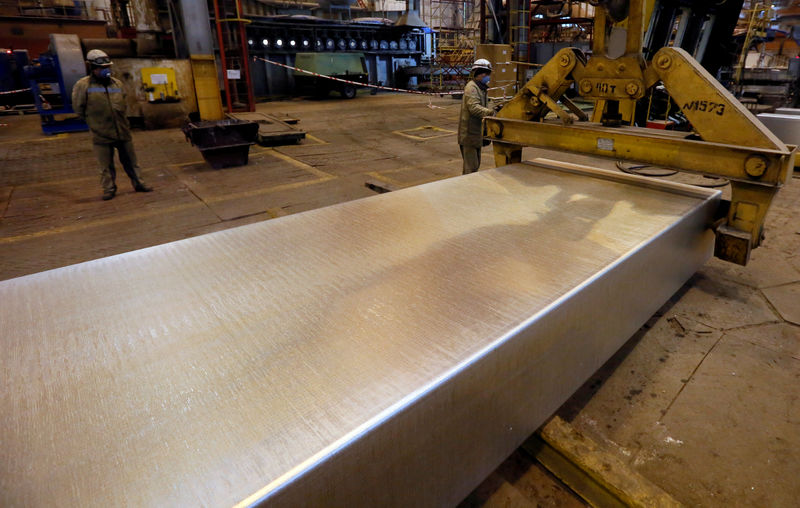By Yuka Obayashi and Melanie Burton
TOKYO/MELBOURNE (Reuters) - Spot aluminium premiums in Asia have nearly halved in recent weeks, even as U.S. premiums hold at 3-year highs, driven down by an influx of Chinese metal and bets that Russian producer Rusal will avoid sanctions.
The divergence is set to complicate quarterly premium negotiations between global miners and Japanese buyers, which set the Asian benchmark for the metal used in everything from cars to beer cans.
The U.S. spot premium <1AUPc1>, a surcharge on top of the futures price to secure delivery of metal from warehouses, has more than doubled so far this year to $485 a tonne.
The rise was spurred by a 10 percent U.S. import tariff aimed at kickstarting domestic output, and fanned by a U.S. move to impose sanctions on United Company Rusal (HK:0486), preventing customers with U.S. exposure from buying metal from the world's second-largest producer.
Premiums also jumped in Europe <1AEPc1> and Japan <1PJMc1> but have fallen in recent weeks, particularly in Asia, where the premium has dropped 45 percent from its May 1 high to be back at levels in January.
The fall reflects the unravelling of the Rusal trade after traders scooped up metal as aluminium prices on the London Metal Exchange
Rusal resumed shipping to some customers from May following an extension of the deadline for companies to wind down contracts with the Russian firm under U.S. sanctions, sources said.
Some Japanese buyers resumed trade with Rusal, but its business with others remains suspended as major Japanese banks worry about secondary sanctions if they make or receive payments from Rusal, according to five sources directly involved in the deals.
"We expect Rusal to get out of the sanctions, which will free up a whole lot of metal," said an aluminium trader in Singapore.
At the same time, the jump in aluminium prices on the LME encouraged more selling out of well-stocked China, where prices on the Shanghai Futures Exchange
While aluminium ingots from China attract an export tax, the higher overseas prices have made it more attractive for manufacturers to ship out semi-fabricated metal, or semis, which can be melted down for use as primary metal, they said.
"China has stepped up selling of semis to Asian buyers, especially to South Korea," said a source at a Japanese trader, adding that this has pushed down premiums in the primary metal market in Asia.
"We've received a spot offer at $88 per tonne for July shipment last week," the source said, compared with a high of $168 early last month on the COMEX aluminium Japan premium.
China's unwrought aluminium and aluminium product exports were steady in April from March at 450,000 tonnes. May data is due on Friday.
The sliding spot premium in Asia has been exacerbated by the impact of the Rusal sanctions on the LME, with July prices pushing above those for August. This has raised the cost of rolling positions forward and boosted inventories of physical metal, traders said. [MALN18-Q18]
BENCHMARK TALKS
For the quarter to end-June, Japanese aluminium buyers agreed to pay a premium of $129
In talks last week, two global aluminium producers offered Japanese buyers a premium of $159-$160 per tonne for primary metal shipments for the July-September quarter, another 23-24 percent increase.
Buyers, however, are reluctant to agree given Asia's tumbling spot premiums.
"With Japanese spot premiums hovering near $100 per tonne, we want to ask for lower premiums for Q3," a source at a Japanese fabricator said.
"We don't usually buy metal from spot market, but we may consider taking some this time if the term premiums are settled at high levels."
